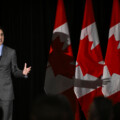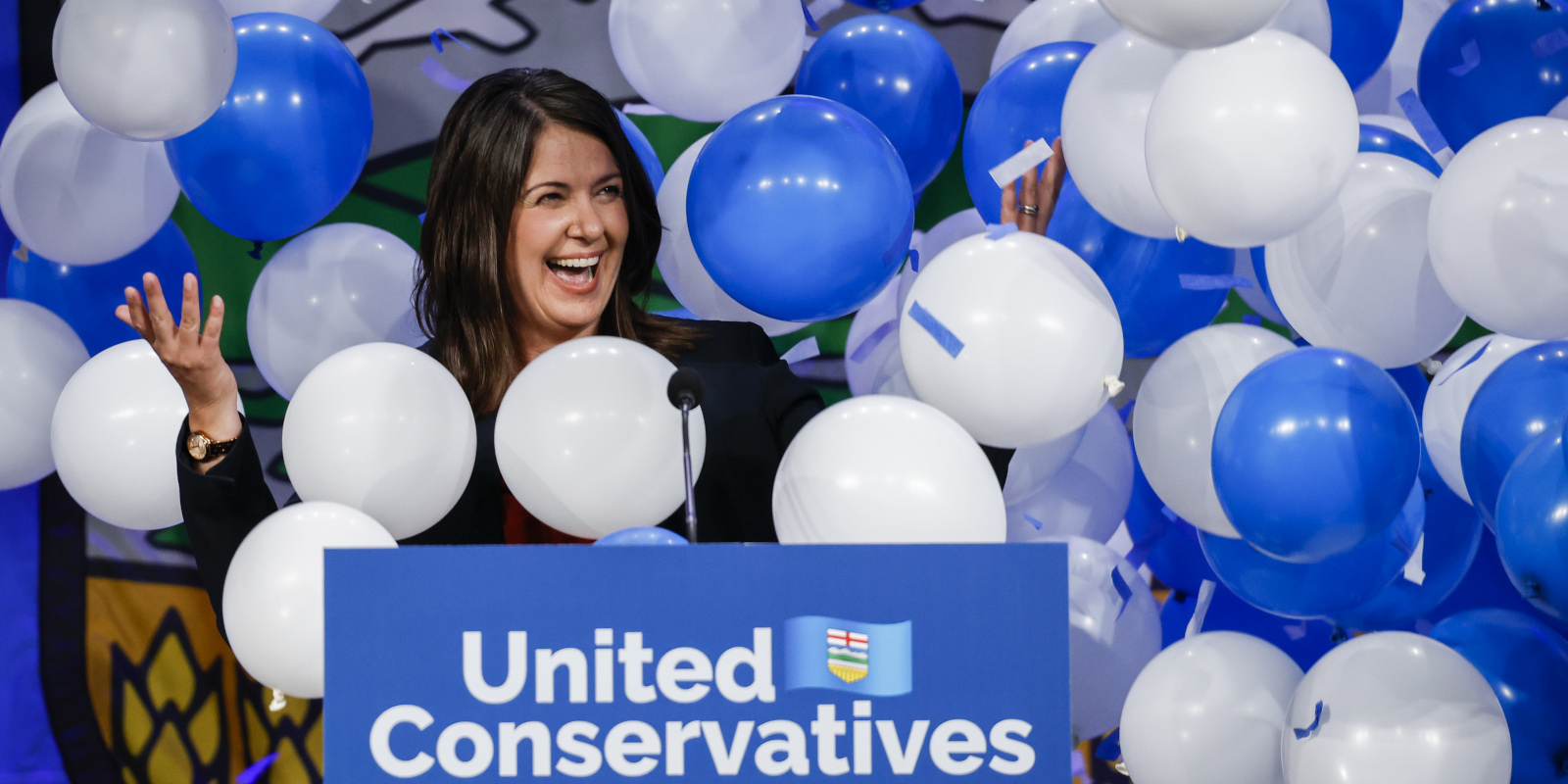CALGARY — With former radio host and Wildrose Party leader Danielle Smith set to be sworn in as Alberta premier on Tuesday, after coasting to victory in the United Conservative Party leadership contest, party members say they don’t expect to see an exodus of moderates from their ranks.
But that could change if the party flounders in the next election.
Melissa Caouette, a UCP member and political strategist who worked for former Alberta premier Jim Prentice, says any uncomfortable, centrist-leaning party members thinking about leaving the UCP will probably wait until after the scheduled 2023 provincial election to initiate a split.
“If it were to work, it needs to happen after this experiment of uniting these parties in Alberta has proven it doesn’t work anymore, and that would be signalled by an election loss,” says Caouette. “If we are losing elections, if our polling is down, if the membership isn’t happy, I think that’s a more appropriate time to have that conversation.”
Lauren Armstrong, a UCP member who worked for the Kenney government, said the media is more interested in the idea of the party splitting than the members.
“I don’t hear that we need to be in different parties, I don’t hear that ‘we need to break up in order to represent our values and our positions’,” says Lauren Armstrong, a UCP member. “The media wants to hear that we all hate each other, but it’s because it’s more interesting than saying, ‘Well you know, it actually looks like we’ll be fine’.”
Smith, who won the party’s leadership on the sixth and final ballot with 53.77 percent of the vote, was a controversial figure due to her opposition to vaccine mandates and her proposed Alberta Sovereignty Act, which, when originally pitched, would supposedly allow the Alberta government the option of refusing to enforce federal laws it opposed.
And although some UCP members are content to wait until the next election to see if they still belong to the party, others have already expressed dismay about Smith’s victory.
“Some Canadian politicians have taken the odd page from the Trump playbook, Danielle is taking entire chapters,” wrote long-time Alberta political strategist Ken Boessenkool at The Line, in a piece that compared Smith to a kamikaze pilot aimed at the province.
Boessenkool, who worked on the campaign for Rajan Sawhney in the leadership race, is one of a number of conservatives who have pushed back on the idea that Smith’s victory represents an ideological squabble, rather than a new kind of populist politics.
In her victory speech on Thursday night, Smith immediately took a confrontational posture against the federal government and COVID-19 measures, although she spent several minutes reaching out to her competitors in the leadership race and then pivoted to economic issues like inflation.
“No longer will Alberta ask permission from Ottawa to be prosperous and free. We will not have our voices silenced and censored. We will not be told what we must put in our bodies in order to work or to travel. We will not have our resources landlocked or our energy phased out of existence by a virtue-signalling prime minister,” said Smith, to applause and cheers from the crowd.
Armstrong says anybody wanting the lead the UCP must show they will stand up to Ottawa and, although constitutional scholars have dismissed the idea, Smith’s Sovereignty Act was the clearest outline of how she would do that.
“I think she will do what Alberta premiers have always done, which is, if they’re offering a deal that we ought to be taking, she’ll take it,” says Armstrong. “But generally speaking, it will be a healthy conflict with the feds that I don’t see as being super different from previous premiers.”
The UCP emerged in 2017 from a merger of the Wildrose and Progressive Conservative parties and the resignation of party leader Jason Kenney, after narrowly surviving a May leadership review with just 51.4 percent of the vote, has reignited old tensions between the two factions.
Having been absent from electoral politics for over seven years, Smith’s victory has been called a takeover by the UCP’s more conservative wing, which is largely drawn from the former, rural-based Wildrose Party that Smith herself led from 2009 to 2014. The former Wildrose Party was originally made up of grassroots conservative voters dissatisfied with the direction of the Alberta PCs.
Caouette says Smith is supported by former Wildrosers who are more likely to split from the UCP if their interests are not represented by the party.
“Danielle Smith has the support of those people, she’s worked hard for it, they’re behind her,” says Caouette. “It’s less likely for the people who disapprove of Smith to be motivated to split the party because they don’t feel like the party is centrist enough for them.”
Armstrong says anyone uncomfortable with the PC-Wildrose merger left the UCP before the last provincial election. She says the tens of thousands of Albertans buying UCP memberships to support Smith is good for the party.
Caouette says that because the UCP originated as a merger of two parties, Smith’s win due to the backing of former Wildrose supporters is not a takeover.
“I wouldn’t say it’s a takeover at all because the point of combining the parties back in 2017 was to make sure that both sides, both the Wildrose and the PC sides, were represented,” says Melissa Caouette. “Sometimes that means that leaders who reflect one side will be the leader.”
Several verbal blunders by Smith, such as suggesting cancer patients can control their illness if it is before Stage 4, marred her ultimately successful campaign.
Caouette says Smith’s curiosity and willingness to engage and listen to people is both a strength and a weakness.
“She’s proven that she can empathize with people, she can talk to people, she can have a discussion with somebody who may or may not share her view and see their perspective,” says Caouette. “The challenge, I think for her in that, is having boundaries, having lines that don’t get crossed.”
Recommended for You

Peter Menzies: Justin Trudeau’s legislative legacy is still haunting the Liberals

‘Our role is to ask uncomfortable questions’: The Full Press on why transgender issues are the third rail of Canadian journalism

Need to Know: Mark Carney’s digital services tax disaster

Theo Argitis: Carney is dismantling Trudeau’s tax legacy. How will he pay for his plan?




